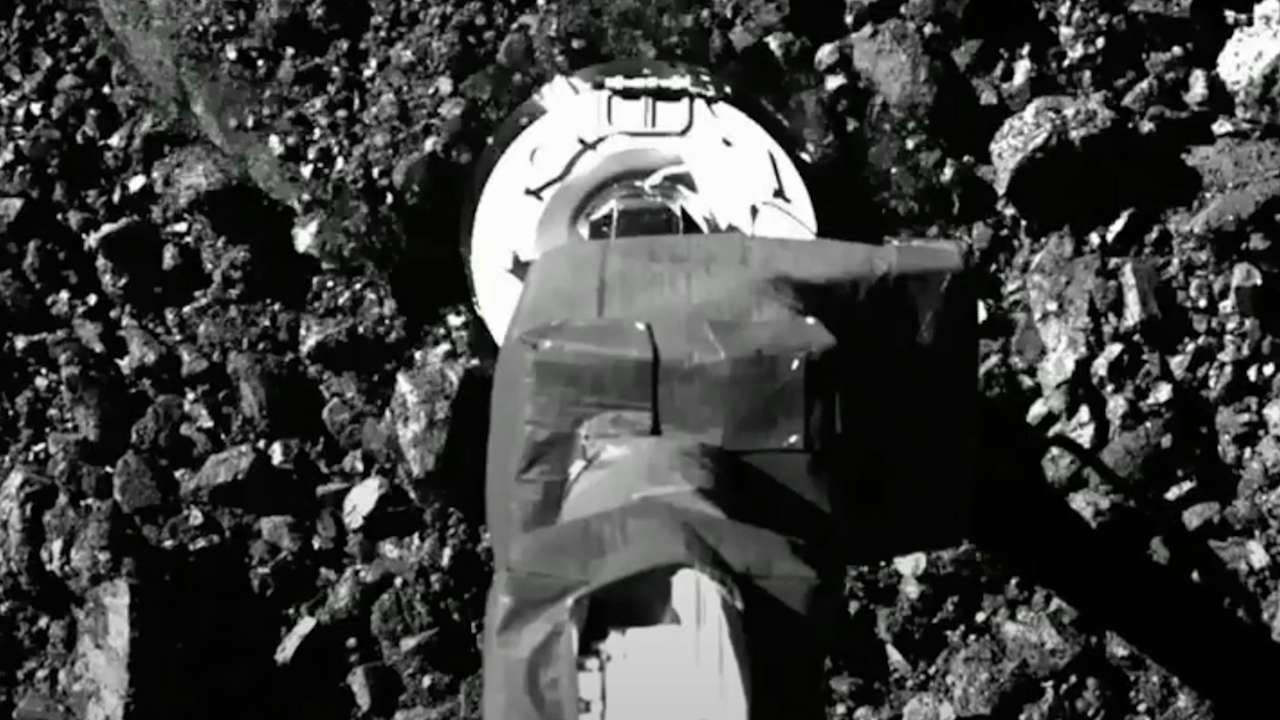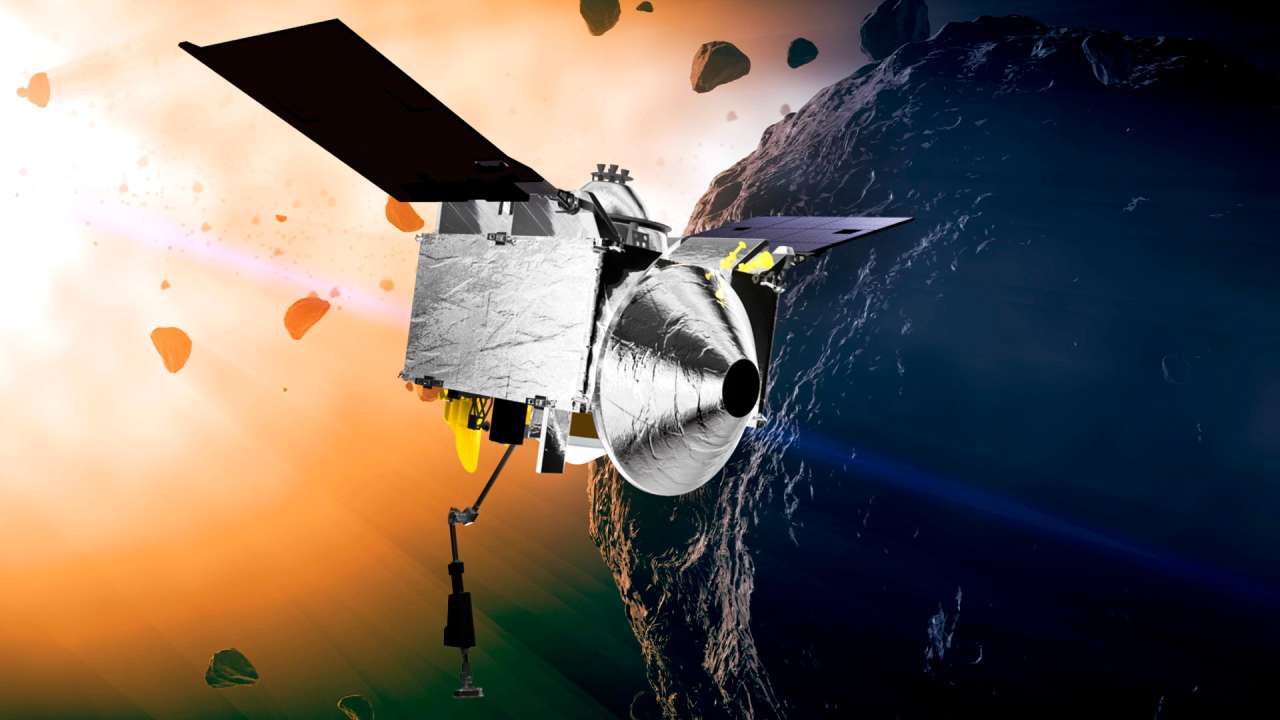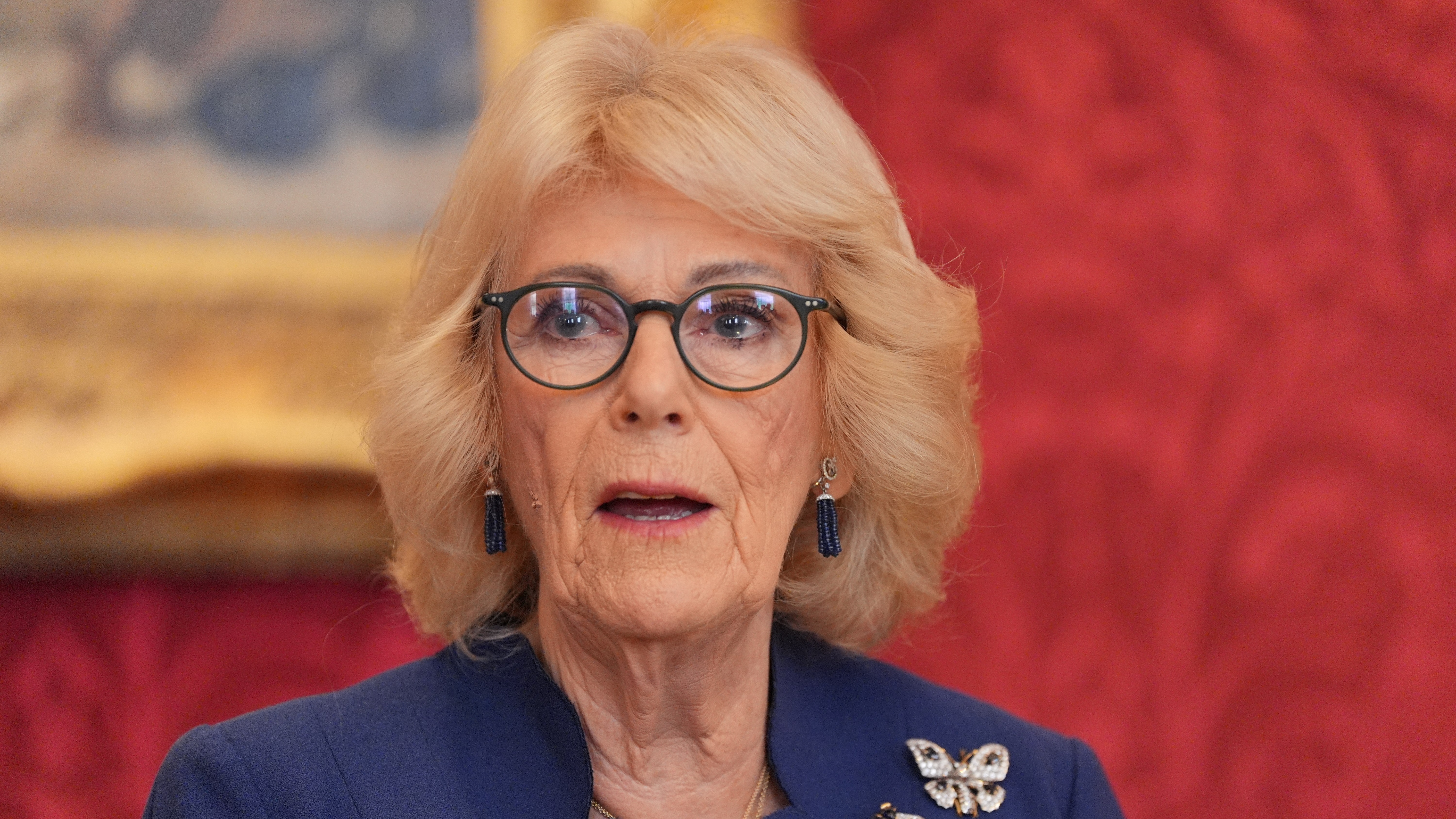NASA provided an illustration of the spacecraft at the asteroid Bennu
UK scientists will receive a sample from asteroid Bennu on Sunday, which is set to unveil secrets of our solar system.
The sample, which was collected as part of Nasa’s Osiris-Rex mission, is finally due to return to Earth.
It will float down into the Utah desert after a parachute opens to safely bring a capsule to the ground.
It is the US space agency’s first mission to collect a sample from an asteroid, and is the largest asteroid sample ever returned to Earth.

The capsule is estimated to hold around 250g of rocks and dust collected from the asteroid’s surface.
NASA will release a quarter of the sample to a group of more than 200 people from more than 35 globally distributed institutions, including a team of scientists from The University of Manchester, and the Natural History Museum.
Asteroid Bennu is a 4.5-billion-year-old remnant of our early solar system and scientists believe it can help shed light on how planets formed and evolved.
Experts say the carbon-rich, near-Earth asteroid serves as a time capsule from the earliest history of the solar system.
It is anticipated that the sample will provide important clues that could help us to understand the origin of organics and water that may have led to life on Earth.
Because the sample has been collected directly from the asteroid, there will be almost zero contamination.
Meteorites that fall to Earth are quickly contaminated from the second they make contact with our atmosphere.
This means Bennu can give us an unspoiled glimpse into the past.
Ashley King, UKRI future leaders fellow, Natural History Museum, said: “Osiris-Rex spent over two years studying asteroid Bennu, finding evidence for organics and minerals chemically altered by water.
“These are crucial ingredients for understanding the formation of planets like Earth, so we’re delighted to be among the first researchers to study samples returned from Bennu.
“We think the Bennu samples might be similar in composition to the recent Winchcombe meteorite fall, but largely uncontaminated by the terrestrial environment and even more pristine.”
The spacecraft launched on September 8, 2016 and arrived at Bennu in December 2018.
After mapping the asteroid for almost two years, it collected a sample from the surface on October 20, 2020.
The capsule is expected to land at 3.55pm.
Want a quick and expert briefing on the biggest news stories? Listen to our latest podcasts to find out What You Need To Know…
Follow STV News on WhatsApp
Scan the QR code on your mobile device for all the latest news from around the country





























